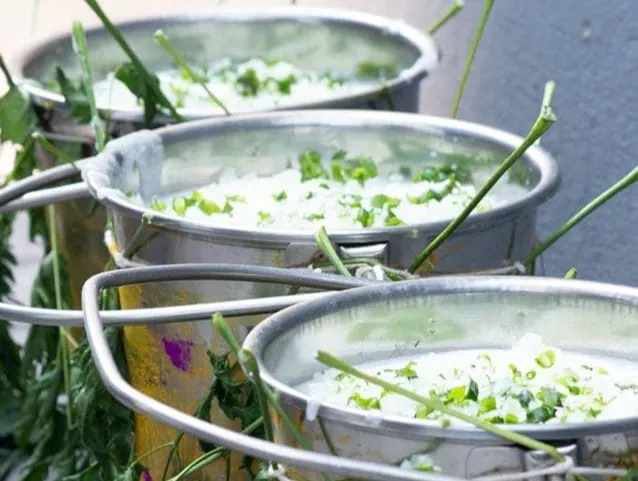It's more than a 'porridge jol': the transformation of Amman prayers
Lifestyle

The month of Aadi commenced on Thursday (July 17).
Image: Supplied
THE modification of Amman prayers among South Indians, especially those whose lifestyles have changed through urbanisation or migration, reveals both continuity and transformation. These rituals, deeply tied to Tamil communities in South Africa, remain resilient cultural expressions, adapting rather than vanishing.
The month of Aadi commenced on Thursday (July 17). As I write this column, I’ve just returned from my paternal aunt’s home, where I partook in Amman prayers. As a devout Tamil, I look forward to this month with childlike excitement. Besides the endless supply of vade and gulgoola, there’s a distinct atmosphere that marks this sacred period.
Yet, not many South Indians today are able to celebrate in quite the same way at yesteryear. With the shift towards apartment living, migration to urban centres and overseas, and the fast pace of modern life, many no longer have access to temples or courtyard spaces traditionally used for these deeply communal rituals.
The observance of Mariamman prayers is a long-standing tradition in South Indian households and temples during July and August, especially on Sundays.
Often referred to as "porridge prayers" because of the fermented mielie meal porridge offered to the Goddess Mariamman for protection and healing, the label does little justice for the spiritual richness of the ritual. I insist on calling it the Amman prayer not a “porridge prayer” because the focus is the worship of the Mother Goddess, whose divine grace is invoked for protection, fertility, good health, and prosperity. After all, Christians do not refer to Christmas as “the pudding and turkey festival”. So why do we reduce the sacred to starch?
Over time, what has become colloquially known as a “porridge jol” refers to a version of the ritual that blends prayer with a more social, and at times indulgent, gathering complete with meat dishes, alcohol, and the rowdy cheer of thunee games. These gatherings are often larger, especially by mid-afternoon when the nominated barman uncle is in high demand and the card tables come alive.
Men call out “Jodhi! Double! Thunee!” under mango trees or carports while women rotate between the kitchen and gossip circles on whose daughter-in-law is worse. But times are changing. With more families living in gated estates, governed by strict rules on noise and gatherings, the shouts of thunee have grown quieter. The scent of the braised freshly-slaughtered rooster that once accompanied these prayers are also beginning to disappear.
For many households today, the Amman prayer has shifted toward a quieter, more introspective observance, rooted in vegetarian offerings and minimalist altars. This transition has not only been logistical but also philosophical. Many devotees are consciously moving away from animal sacrifice, choosing instead to offer vegetarian dishes to the Goddess. The once-ritual slaughter of roosters offered to deities such as Maduraiveeran, often accompanied by a shot of cane spirit or vodka and a couple of pulls on a dagga pipe, is steadily declining.
Fewer mouths to feed, fewer animals to kill. This isn't simply about urban bylaws or lifestyle upgrades. It's a generational and ethical shift. The youth are increasingly drawn to forms of worship that centre around non-violence, simplicity, and spiritual clarity - values that resonate with a more global, ecologically-aware consciousness.
The divine is still honoured, but the methods are evolving. What we’re witnessing, then, is not a fading away, but a recalibration of meaning. The essence of Amman worship endures sometimes quietly, sometimes defiantly, but always pulsing with memory, reverence, and the evolving rhythms of Tamil life in South Africa.

Saranya Devan
Image: Supplied
Saranya Devan is a theatre-maker, dance performer, academic and proud Tamilian. She holds an MA in dance from UCT, and a MA in Bharatha Natyam from the University of Madras.
** The views expressed do not necessarily reflect the views of IOL or Independent Media.
Related Topics: